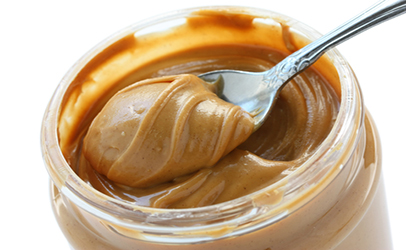 When a federal criminal case involves allegations of fraud and conspiracy and gets officially designated as “complex” with four defendants and one dozen attorneys involved, it is not surprising that pre-trial motions would pile up like cordwood before a long winter. With the trial of four former Peanut Corporation of America executives set to begin in February 2014 on 76 federal felony counts, U.S. District Judge W. Louis Sands has set Dec. 6 for hearing “all pending motions.” The motion hearing will be held in Sands’ federal courtroom in Albany, GA, beginning at 2 p.m. Defendants Stewart Parnell, Michael Parnell, Samuel Lightsey, and Mary Wilkerson and the nine attorneys defending them have numerous motions before Judge Sands, whose decisions will set the table for the coming trial. Among the felonies charged are conspiracy, introduction of adulterated food into interstate commerce with intent to defraud or mislead, introduction of misbranded food into interstate commerce with intent to defraud or mislead, interstate shipments fraud, wire fraud, and obstruction of justice. The four defendants have pleaded not guilty to the charges, which stem from the deadly 2008-09 national Salmonella outbreak that was traced back to peanut butter and peanut paste produced by PCA at plants in Georgia and Texas. Among the motions currently pending before the court are those from brothers Stewart and Michael Parnell to have their trials separated, various discovery requests by Wilkerson, and concerns from Lightsey’s attorneys about a schedule conflict this trial might have with a murder trial they are involved with in Oklahoma. U.S. Department of Justice (DOJ) attorneys are also contesting Stewart Parnell’s request to present expert testimony about his alleged ADHD diagnosis. Stewart Parnell was the chief executive of PCA when the government alleges that he knowingly shipped peanut products that were contaminated with Salmonella. Michael Parnell was vice president and the company’s peanut broker. Lightsey was in charge of operations at the Blakely, GA, plant, and Wilkerson was quality assurance manager at the same location. The outbreak involved the serotype known as Salmonella Typhimurium. It sickened 700 and killed nine people in one of the most deadly outbreaks of foodborne disease in U.S. history. The outbreak also brought the largest ingredient recall in U.S. history, involving almost 4,000 products by hundreds of food businesses that purchased peanut products from PCA.
When a federal criminal case involves allegations of fraud and conspiracy and gets officially designated as “complex” with four defendants and one dozen attorneys involved, it is not surprising that pre-trial motions would pile up like cordwood before a long winter. With the trial of four former Peanut Corporation of America executives set to begin in February 2014 on 76 federal felony counts, U.S. District Judge W. Louis Sands has set Dec. 6 for hearing “all pending motions.” The motion hearing will be held in Sands’ federal courtroom in Albany, GA, beginning at 2 p.m. Defendants Stewart Parnell, Michael Parnell, Samuel Lightsey, and Mary Wilkerson and the nine attorneys defending them have numerous motions before Judge Sands, whose decisions will set the table for the coming trial. Among the felonies charged are conspiracy, introduction of adulterated food into interstate commerce with intent to defraud or mislead, introduction of misbranded food into interstate commerce with intent to defraud or mislead, interstate shipments fraud, wire fraud, and obstruction of justice. The four defendants have pleaded not guilty to the charges, which stem from the deadly 2008-09 national Salmonella outbreak that was traced back to peanut butter and peanut paste produced by PCA at plants in Georgia and Texas. Among the motions currently pending before the court are those from brothers Stewart and Michael Parnell to have their trials separated, various discovery requests by Wilkerson, and concerns from Lightsey’s attorneys about a schedule conflict this trial might have with a murder trial they are involved with in Oklahoma. U.S. Department of Justice (DOJ) attorneys are also contesting Stewart Parnell’s request to present expert testimony about his alleged ADHD diagnosis. Stewart Parnell was the chief executive of PCA when the government alleges that he knowingly shipped peanut products that were contaminated with Salmonella. Michael Parnell was vice president and the company’s peanut broker. Lightsey was in charge of operations at the Blakely, GA, plant, and Wilkerson was quality assurance manager at the same location. The outbreak involved the serotype known as Salmonella Typhimurium. It sickened 700 and killed nine people in one of the most deadly outbreaks of foodborne disease in U.S. history. The outbreak also brought the largest ingredient recall in U.S. history, involving almost 4,000 products by hundreds of food businesses that purchased peanut products from PCA.
Sponsored by Marler Clark
